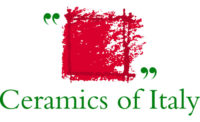In addition to reviewing the overall design and creative uses of tile, the jury also evaluated the sustainable aspects of each project. After an intensive selection process, the committee selected three top prizes and three honorable mentions. In the Commercial category, Cooper Carry was chosen as the winner for the renovation of Newport Center, an upscale mall located in Jersey City, NJ. The company used tiles from four different Italian tile manufacturers to give the interior an elegant facelift. The top Institutional award went to Baldinger Architectural Studio for the design of the Disability Empowerment Center of Arizona (DEC), a 64,000-square-foot non-profit disability services campus. This year the Frank Lloyd Wright School of Architecture received the Residential prize for its design and construction of Taliesin MOD.FAB, a modular, prefabricated home that will be used to house visiting lecturers, faculty and advisors. Finally, Honorable mentions were awarded to: Gross Kaplin Coviensky Architects for the Head Office Dollarama (Commercial); Groth Design Group, Inc. for the St. Jerome Catholic Church (Institutional) and Ziger/Snead LLP for the Woodvalley House (Residential).

Commercial Winner: Cooper Carry for Newport Center Renovation
Commercial Winner: Cooper Carry
Project: Newport Center RenovationTiles: Lea, Refin, Impronta Ceramiche, Ergon
Installation Products: Mapei
Contractor: Del Turco Brothers, Inc.
Distributor: Ceramic Technics
Since 1960, Cooper Carry has steadily built a reputation for thoughtful design applied to diverse projects worldwide. Referred to as "The Center for Connective Architecture," the firm seeks to build exceptional places that enrich the life of the people who occupy them. Led by architects Angelo Carusi, Patrece Julian and Douglas Webster, the Newport Center renovation certainly succeeded in meeting this corporate goal. More than 20 years after its original construction, the mall, which doubles as a hub for many NY/NJ PATH train commuters, was in need of a major renovation. Over the years it had only had minor renovations, but owner Newport Center LLC wanted to provide its customers and visitors with an interior space that was more elegant and consistent with their upscale attitudes. Although many attributes of the mall were renovated, the architectural team cites that the most effective way to increase the quality of the space was to replace the flooring. According to Carusi, principal of Cooper Carry, "Since the mall would experience much more traffic than a typical shopping center, porcelain tile was used as the flooring material of choice." For the main walkways, Lea's "Technoquartz" and "Stonehenge" were laid in a random width pattern. To highlight the central space, visible from all three floors above, the architects used three colors from "Technoquartz" to create a large-scale herringbone pattern reminiscent of great transportation halls. The idea was to use this large graphic pattern as a backdrop to the movement of commuters and shoppers. Smoother tiles were specified for the food court, due to their ease of cleaning. Impronta's "Le Gemme" was installed on the columns, while Refin's "Pavimenti," in colors Avalon, Cendre and Sable, were used to produce a variegated look for this portion of the mall floor. Even the restrooms, another high-traffic area, were refaced in tile. Ergon's "Alabastro" was used on the floors as well as on the walls as wainscoting (up to a height of 7 feet).
Also receiving recognition in this category is Gross Kaplin Coviensky architects, an architectural practice based in Montreal, Canada. Tiles from Caesar's "More" series, in multiple formats, were installed in the interior and exterior of the Dollarama Head Office. The sleek, modern tiles are emphasized by the building's architectural details and give the place a contemporary feel. The project also features installation products, including grout, mortar and other adhesives from Mapei.

Institutional Winner: Baldinger Architectural Studio, Inc for Disability Empowerment Center of Arizona (DEC)
Institutional Winner: Baldinger Architectural Studio, Inc
Project: Disability Empowerment Center of Arizona (DEC)Tiles: Cooperativa Ceramica d'Imola
Contractor: Onsite Design
Distributor: Imperial Tile Imports
Baldinger Architectural Studio is a specialty architectural firm with exceptional and diverse capabilities. The firm designs modern, functional, easy-to-build, low-maintenance structures. These innovative buildings utilize state-of-the-art technologies with emphasis on economy, energy efficiency and sustainability. The Disability Empowerment Center of Arizona ("The DEC") is a prime example. It is a 64,000-square-foot universally designed, accessible, transit- oriented, non-profit disability services campus serving the Greater Phoenix area through the collaboration and partnership of similar minded disability-oriented agencies. The design's central theme is free and safe movement for all building patrons and users, and universally accessible and healthy working environments that enable interaction and cooperation between individuals and agencies. With that in mind, Baldinger selected Mirage's "Altair" PR40 porcelain tile to be installed throughout the building's lobbies, corridors, restroom cores, classrooms and safe rooms for its natural aesthetics, low-maintenance requirements and smooth surface, allowing for effortless and safe movement of wheelchair users. In addition, the tile has been installed in "safe rooms" designed to eliminate all environmental irritants and used by persons with chemical sensitivities. The extensive use of porcelain tile is one of the project's many sustainable attributes. Other environmentally-focused choices include: solar sun shadowing of the window wall, low VOC carpet and paint products, high-efficiency lighting, high-efficiency HVAC system, building envelope and terra-cotta rain screen building cladding.
Also deserving praise in the Institutional category is the St. Jerome Catholic Church, designed by Groth Design Group. Italian tile was used throughout the space. The main aisle of the worship space is highlighted with two colors of 6- x 24-inch tile from Caesar's "Ambienti" collection laid in a herringbone pattern. This pattern and tile size sets itself apart from the other 12- x 12-inch tile that is laid throughout the worship space to emphasize main liturgical axis leading to the altar. Finally, the entire choir/organ balcony was finished with the same "Ambienti" tile to match the main body of the church and to enhance the acoustic quality of the space.

Residential Winner: Frank Lloyd Wright School of Architecture for Taliesin Mod. Fab.
Residential Winner: Frank Lloyd Wright School of Architecture
Project: Taliesin Mod. Fab.Tiles: Floor Gres, Etruria Design, Edilcuoghi
Contractor: Students at Frank Lloyd Wright School of Architecture
Distributor: Master Tile
This exceptional project is proof that the future is in good hands. Designed and constructed by students from the Frank Lloyd Wright School of Architecture, under the guidance of recent M. Arch graduate Christian Butler, lead designer and project manager; Nick Mancusi, assistant project manager; and Faculty Adviser Michael P. Johnson, the 500-square-foot Taliesin Mod.Fab. project acts like a one-bedroom apartment. Located on the campus of Taliesin West, it will be used to house visiting faculty, lecturers and architects. The tiles, sourced from Floor Gres, Etruria Design and Edilcuoghi, were selected for their modern design and sustainable qualities. They are part of an energy saving system designed to keep costs down. A garden wall with integrated solar panels provides privacy to the bedroom and power to the unit. It also features passive and active environmental control systems, such as natural ventilation and lighting, water catchment and a gray water re-use system. The ceramic tile floors are positioned to capture solar heat and to release it during the chilly desert nights. The tile used in the main living space was selected not only for its aesthetic value, but also for its reuse of waste materials. Mod.Fab can be either plugged in to utilities, or unplugged, and is therefore, self-sufficient.
Rounding out the list of winners is Ziger/Snead LLP. The Maryland-based firm got a nod of approval from the jury for its Woodvalley House. The house, nestled into the hillside to minimize the scale of its 6,200 square feet, affords direct and unobstructed access and views to the landscaped rear yard, gardens and wooded ravine beyond the edge of the property. The expansive great room -- 47 feet long x 25 feet wide x 18 feet high -- required a radiant heating system and a large-scale tile proportional to the scale of the space. The owner loved Mirage's 24- x 48-inch "Cementi" format due to its monumental character. In keeping with the Italian theme, mortar from Mapei was used to secure the pieces together. A custom mahogany window wall system blurs interior and exterior spaces -- extending the great room to the terraces, gardens and swimming pool. High-performance glazing with ceramic frit and large overhangs mitigate solar heat gain in the summer months. The tile allows the thermal mass of the floor to be an effective heat sink for the winter months, greatly reducing the need to actively heat the space.
For a digital guide to the Ceramic Tiles of Italy Design Competition, please visit:www.tilecompetition.com.



